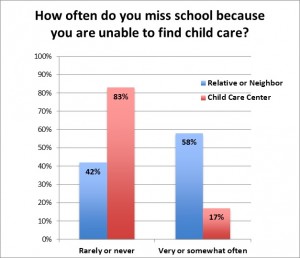From birth to age five, young children’s brains make millions of neural connections every second — forming brain architecture for life. This is the foundation upon which all later learning, behavior, and health depend.
Parents will always be the most important influence during this time of a child’s life. But with 70% of Pennsylvania children under age six having both parents in the labor force, state policymakers must support evidence-based programs that strengthen our families and ensure access to high-quality early care and education in order to maximize the potential of the first five years.
EARLY CHILDHOOD EDUCATION POLICY PRIORITIES
- Expand availability of high-quality, affordable child care and pre-k so parents can work and young children get an early start on lifelong learning.
- Increase wages of early education teachers to reduce turnover, increase availability, and deliver continuity in children’s learning experiences.
- Ensure that racial equity is embedded in all aspects of child care quality improvement such as program development, business development, and the definition of quality.
MOST RECENT RESEARCH
- REPORT: Advocate Toolkit – Early learning professionals, families and community members working together to advance child care and pre-k (Mar 2024)
- REPORTE: Kit de herramientas para activistas – Los profesionales del aprendizaje temprano, las familias y los miembros de la comunidad trabajan juntos para fomentar el cuidado infantil y los programas pre-k (Mar 2024)
- REPORT: How to Find, Choose, and Pay For High-Quality Child Care: A Guide for Families (Mar 2024)
- REPORTE: Cómo encontrar, elegir y pagar atención infantil de alta calidad: Guía para las familias (Mar 2024)
- SURVEY: Pennsylvania’s Early Care & Education Crisis, Feb 2023 Survey Results (Mar 2023)
- POLLING: PA Voters Overwhelmingly Support Additional Investments in Early Care and Education (Feb 2023)
- REPORT: The High Cost of Working in Early Childhood Education (Jan 2023)
- REPORTS: The Case for An Ambitious Rebound: 2022 Regional Reports on COVID’s Impact on Children (2022)
- REPORT: Getting Back to Business: Non-Traditional Hour Child Care (Mar 2022)
(scroll down for additional research materials)

